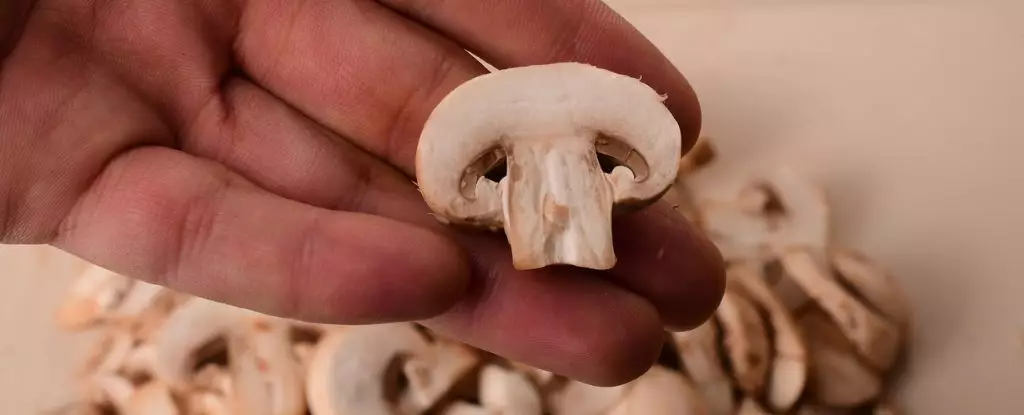In recent years, there has been a growing fascination with exotic foods, especially those believed to carry medicinal properties. Among these, mushrooms like Lion’s Mane have gained prominence for their potential health benefits. However, one of the most common and yet least appreciated varieties—the white button mushroom (Agaricus bisporus)—is quietly emerging as a contender worthy of attention in the realm of cancer research. Although primarily viewed as a culinary staple, this ubiquitous mushroom is being studied for its possible role in combating prostate cancer—an area that has garnered much interest and speculation among cancer researchers.
Historically, the majority of food-derived products have not had regulatory approval as anti-cancer treatments, leading to a steep uphill journey for proponents of dietary interventions. Yet, researchers at the City of Hope, an esteemed cancer research institution in the United States, have taken significant strides toward establishing a scientific basis for the therapeutic benefits of white button mushrooms. Their work is driven by the necessity to comply with FDA regulatory guidelines, ensuring that any claims made about these mushrooms are substantiated by rigorous scientific evidence.
The groundbreaking findings from their research indicate that white button mushrooms could potentially play a crucial role in slowing down the advancement of prostate cancer. By treating these mushrooms as a “nutraceutical” option, they are advocating for their incorporation into treatment regimens following standard therapies, thereby enriching the overall therapeutic arsenal against cancer.
One of the significant challenges in treating prostate cancer is the tumor’s ability to evade the body’s immune system. Tumors harness myeloid-derived suppressor cells (MDSCs) to shield themselves from immune responses, a tactic that allows cancer cells to thrive and proliferate. Herein lies the potential of white button mushrooms: early-stage research suggests that their extract may indeed counteract this immune suppression. In prior clinical trials, patients who incorporated mushroom-based therapies observed a promising attenuation in their cancer markers, leading to undetectable levels in some cases.
The promising results from these clinical findings offer a tantalizing glimpse into a nutrient-dense strategy, which could complement conventional cancer treatments. In animal studies, the administration of mushroom extract notably delayed tumor growth and even improved survival rates in mice by fostering a more robust immune reaction. Researchers observed that these animals exhibited reduced levels of tumor-derived suppressor cells, making room for anti-tumor immune cells to flourish.
The ongoing research includes a phase II clinical trial focused on patients diagnosed with prostate cancer, where blood samples are evaluated to better understand the mechanisms at play. Preliminary results indicate an increase in beneficial immune cells and a decrease in suppressor cells post-treatment, reinforcing the hypothesis that white button mushrooms might help bolster the body’s natural defenses against cancer.
Despite these encouraging trends, scientists grapple with understanding the specific compounds responsible for the anti-cancer properties of the mushroom extract. The complexity of phytochemical profiles found in mushrooms means they could possess a cocktail of beneficial agents, from soluble fibers to various proteins and lipids, all potentially working synergistically against cancer cells.
While the findings surrounding white button mushrooms are indeed promising, researchers like Xiaoqiang Wang emphasize the preliminary nature of these results and the necessity for ongoing investigation. The potential implications of this research are significant, as they open the door to a paradigm shift in how we approach cancer treatment—integrating nutritional strategies alongside traditional methods.
The reinterpretation of food as medicine reflects a broader understanding of health and wellness, wherein diet not only serves to nourish the body but also acts as a formidable ally in the face of disease. As we continue to uncover the secrets hidden in the world of fungi, the white button mushroom may yet prove to be an unsung hero in the fight against cancer, embodying the intersection of culinary tradition and modern medicinal exploration.


Leave a Reply